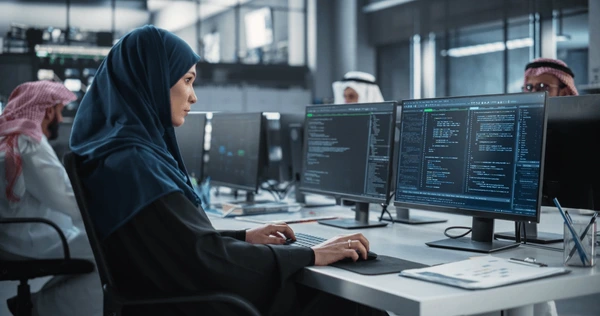In recent years, Arabic language media has become a key player in shaping how the Gulf region is seen by the world. Countries like the United Arab Emirates, Saudi Arabia, Qatar, and Bahrain are investing heavily in Arabic news channels, newspapers, and digital platforms. These efforts are not just about sharing local news—they are also part of a bigger plan to promote the Gulf’s culture, economy, and leadership on the global stage.
For decades, the global media space was mostly led by English-language outlets. But now, Gulf countries are proving that Arabic media can also lead international conversations, especially when it comes to issues in the Middle East and the Arab world.
Connecting The Arab World To Global Audiences
One major goal of Arabic media in the Gulf is to connect Arab audiences with global events while also explaining the Gulf’s role in international matters. Channels like Al Arabiya and Sky News Arabia have become trusted sources not just in the region, but in other parts of the world. These outlets report in Arabic but often reach global audiences through subtitles, translations, and partnerships with international media.
This allows them to present stories from an Arab point of view, which is important because global stories are often told through a Western lens. By controlling their own narrative, Gulf countries can better explain their policies, beliefs, and visions for the future.
A Focus On Culture And Identity
Another big role of Arabic language media is to promote Arab culture and traditions. In a world where cultures can easily blend or disappear, the Gulf countries are using their media platforms to preserve and celebrate their unique identity. From traditional music and poetry to food and family values, Arabic media highlights what makes the Gulf region special.

This is especially important for younger generations, who are growing up in a digital world full of outside influences. Media in Arabic helps them stay connected to their roots, while still being part of global conversations.
Supporting Diplomacy Through Media
Arabic media in the Gulf is also a tool for diplomacy. News reports, interviews with leaders, and documentaries about the region help build trust with other nations. Media can influence how countries see each other and how people feel about global issues.
For example, when the UAE hosts major events like COP28 or the World Government Summit, Arabic media plays a big part in sharing the event’s goals and outcomes. This not only informs local viewers but also shows the world that the Gulf is serious about global challenges like climate change and innovation.
Through well-planned media coverage, Gulf nations can highlight their efforts in humanitarian aid, peacebuilding, and economic partnerships. These stories help shape positive relationships with countries far beyond the Middle East.
A Bridge Between Old And New
The Gulf region is known for its fast growth and modern cities, but it also holds deeply rooted traditions. Arabic media acts as a bridge between these two worlds. It brings stories of progress—like space missions, digital economies, and AI innovation—into the lives of Arabic-speaking audiences, while still honoring heritage.
Media outlets now use podcasts, social media, and online platforms to reach younger people in ways that feel modern but still respect the Arabic language. This blend of tradition and innovation is what makes the Gulf’s media landscape so unique.
Promoting Economic Growth And Tourism
Arabic-language media is also helping the Gulf attract investors and tourists. Well-produced programs and articles highlight the region’s business opportunities, beautiful landscapes, and luxury experiences. Whether it’s promoting Expo 2020 Dubai or Saudi Arabia’s Vision 2030, Arabic media helps build excitement around new projects and national visions.

Tourism campaigns in Arabic reach millions in nearby Arab countries, while also offering translated versions for international audiences. These campaigns often feature stories told by locals, making them feel authentic and personal.
As a result, the Gulf is becoming more than just a business hub—it’s being seen as a cultural and travel destination with something special to offer the world.
Education And Language Pride
Another important benefit of Arabic media is that it encourages people to take pride in their language. In many parts of the world, young people are switching to English for education and work. While English is useful, it’s also important for communities to keep their native languages strong.
In the Gulf, Arabic media supports education by offering content that is not only informative but also easy to understand. Educational TV shows, documentaries, and news programs make learning in Arabic enjoyable and useful. This strengthens the role of the Arabic language in schools and universities.
It also inspires young journalists and storytellers to use Arabic to share their ideas, dreams, and experiences with the world.
Challenges And The Road Ahead
Despite its success, Arabic media still faces challenges. One issue is making sure content remains high quality and relevant to all age groups. Another challenge is competing with international media, which often has bigger budgets and global reach.
However, the Gulf is responding by investing in media training, hiring skilled writers and broadcasters, and creating new digital platforms. There’s also a growing focus on storytelling, making sure that the stories being told are both local and relatable to a global audience.
By continuing to support Arabic language media, the Gulf is not only protecting its cultural identity—it’s also building a strong voice in the global media space.
Conclusion
The rise of Arabic media in the Gulf is more than just a regional success. It’s a powerful example of how language and culture can help shape global conversations. Through thoughtful reporting, cultural storytelling, and smart diplomacy, Arabic-language media is helping the Gulf take its place on the world stage.
Also read: The Rise of Co-Working Spaces in Gulf Metropolises



